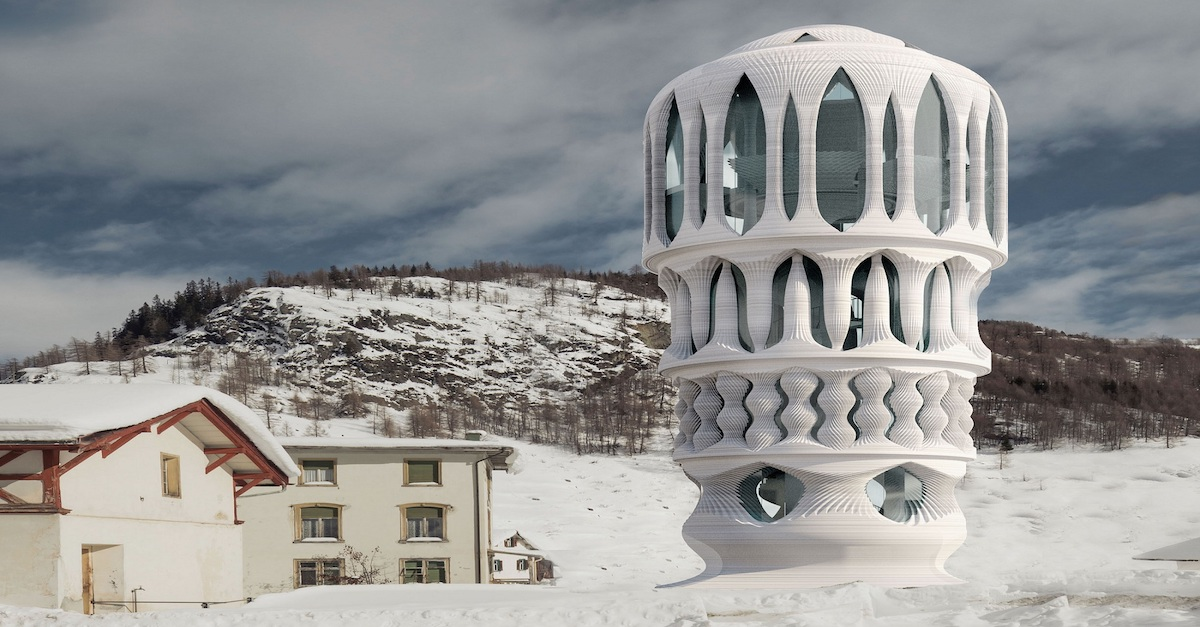In May 2022, around 2,000 business leaders and politicians have been in Davos, in Switzerland, for the World Economic Forum’s (WEF) annual meeting. The WEF is an international non-governmental and lobbying organization based in Cologny, canton of Geneva, Switzerland. With the mission to “improve the state of the world by engaging business, political, academic, and other leaders of society to shape global, regional, and industry agendas”, it was founded in 1971 by German engineer and economist Klaus Schwab. The WEF is mostly known for its annual meeting in Davos. Over the course of five days, 3,000 paying members and selected participants – including investors, business leaders, politicians, economists, celebrities, and journalists – discuss global issues.
During the WEF Annual Meeting 2022, ETH Zurich hosts several exclusive events in its RETHINKING LIVING Pavilion. RETHINKING LIVING, created in the spirit of ETH alumnus A. Einstein: ”The important thing is not to stop questioning”, brings together scientists, industry experts, and outstanding global thinkers from ETH Zurich and across the world with the aim to re-think different conceptions of living, re-evaluate life choices, and re-consider the changes needed in a post-pandemic world. Will new technologies build a more sustainable, resilient, and equitable world? On the occasion of the WEF Annual Meeting and to incite exchange, three pioneering exhibits explore the human coexistence in different dimensions: the physical, “White Tower”, the cyber-physical, ”no1s1″ house, and the completely virtual, ”Digital Einstein”.
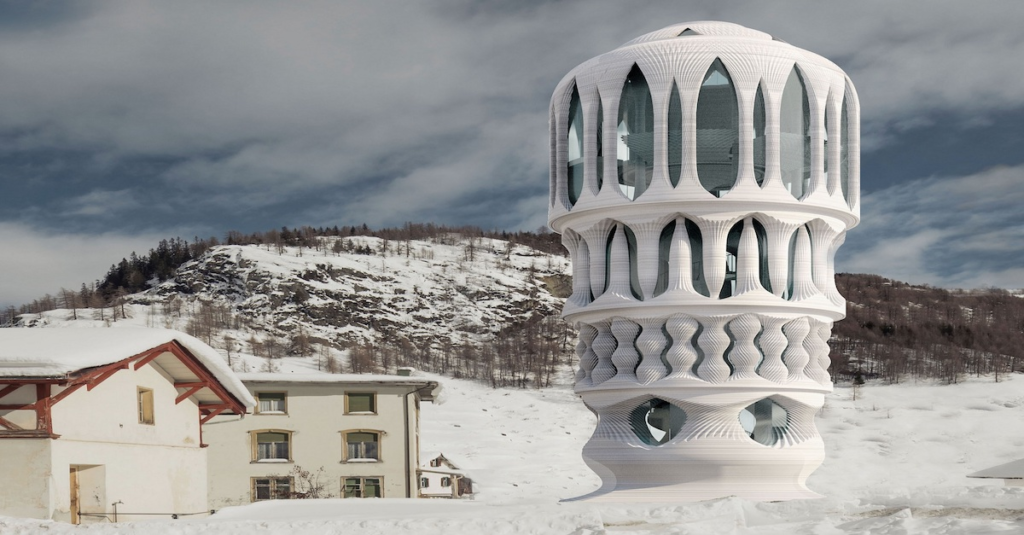
The White Tower is a 29-meter tall, entirely 3D printed building located along the Julier mountain pass in the remote Swiss village of Mulegns. The tower offers exhibitions, performances, and music. It aims to revitalize a village in decline and to describe the rich cultural history of Mulegns and its surroundings. A large portion of the tower will be built in an on-site fabrication lab. In this way, the tower provides digital skills to the mountain regions and advances local trade. It serves as a demonstration of the groundbreaking possibilities of computational design and digital fabrication, which will fundamentally change conventional buildings in the years to come.
No1s1 (no-one’s-one) rethinks collective goods and ownership. It is the first house on the blockchain that can be used by anyone but it belongs to no one. It runs itself and rents itself out. This concept of self-ownership aims to create a digital ecosystem of people, and artificial things. The prototype is a meditation cabin that disattends the usual economic and social expectations. It is decorated with LED lights, connected to a solar panel, and has comfortable seats for meditation inside. No1s1 aims to become an alternative model for real estate and infrastructure.
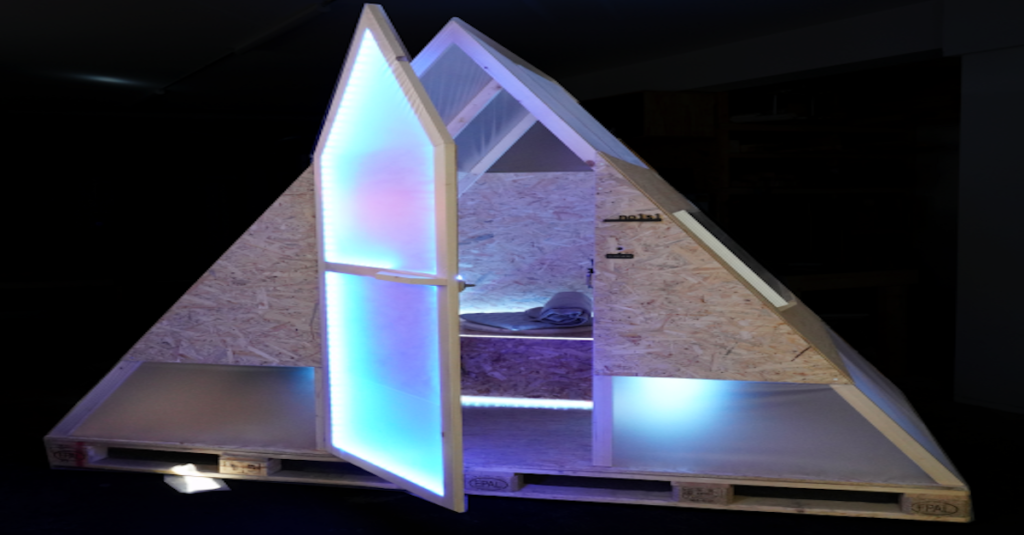
The final idea is a “Nature 2.0’’’, a self-sustaining human infrastructure that manages and regulates itself like a natural ecosystem. To celebrate the 100 years of Einstein’s Nobel Prize in Physics, ETH Zurich brings its most famous alumnus to life as an animated character. The implemented platform offers an opportunity to interact with a digital Einstein.
Albert Einstein studied at ETH Zurich between 1896 and 1900, graduating with a diploma in mathematics and natural sciences, and afterward obtained his doctorate at the University of Zurich. After some time in Bern, Einstein returned to his alma mater as a professor of theoretical physics between 1912 and 1914. In the interactive platform, a digital Einstein talks about his years in Zurich. The project is part of the university’s strategy to boost dialogue with society and to bring young people closer to science. Digital Einstein will be taking up his post at various locations around ETH and, eventually, abroad.
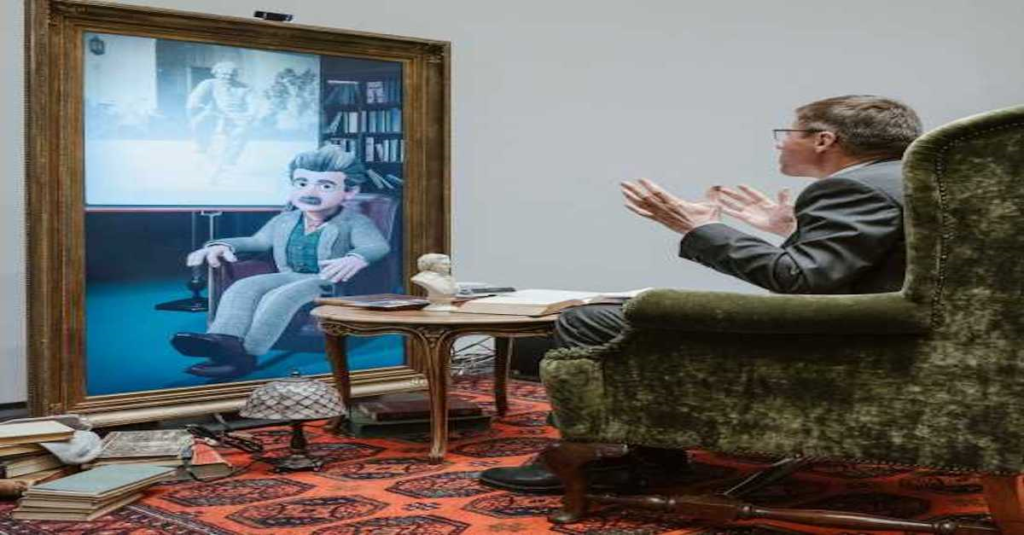
References
https://ethz.ch/en/news-and-events/eth-news/news/2022/05/eth-at-wef-rethinking-living.html
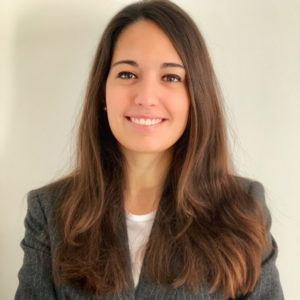
This article was written by Elisa Bissacco as part of an ongoing series of scientific communications written and curated by BioTrib’s Early Stage Researchers.
She is studying a PhD in Tribological Characteristics of Nanofibrous Electrospun Materials at ETH Zurich.

